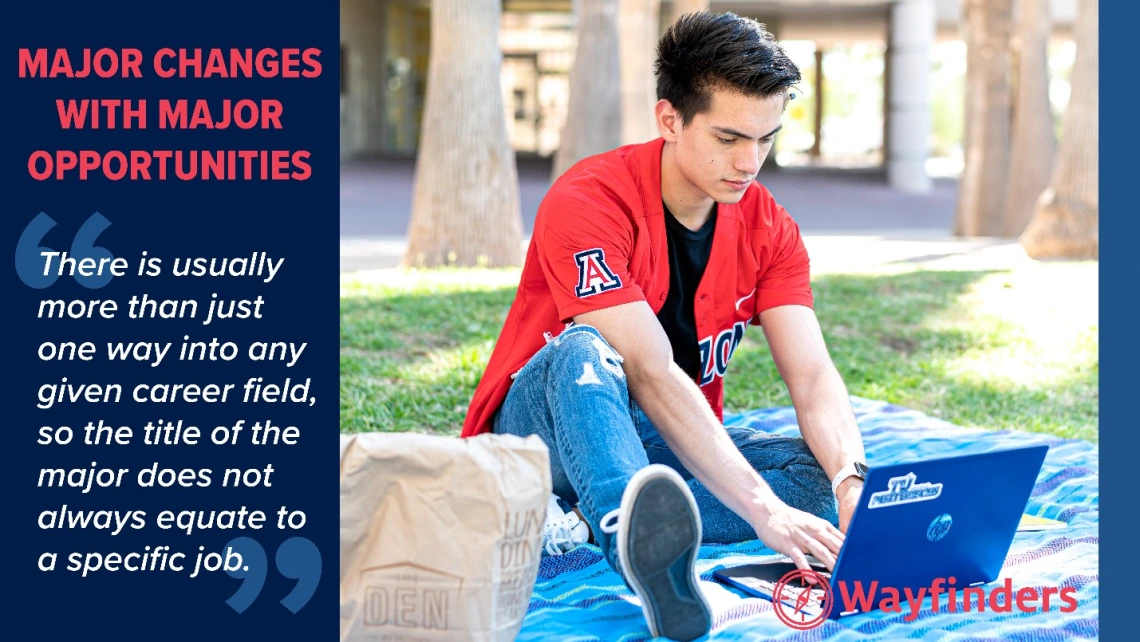Major Changes with Major Opportunities

“I don’t think this major is for me. Is it too late to switch?”
Calling all parents, grandparents, partners, friends, and supporters of any kind! If and when you hear this from your student, don’t worry, we are here to help! You may be thinking, “well, how long would that push back graduation?” or “what jobs could they get with a different degree?” These are valid concerns which is why the University of Arizona provides immense support for major and career exploration. With over 300 options, our trained Academic Advisors through the A Center can help your student find their perfect fit based on individual interests, values, and personal strengths. If your student already has a major in mind, they can schedule an appointment with that specific advisor and discuss what that transition would look like as well as what credits they already have that could apply. All advisors by major and minor can be found on our Advising Resource Center’s site.
Some students may have trouble narrowing their desires down to one major because they are still unsure of what they want to do after graduation. Career exploration and major exploration go hand in hand, but are not always the exact same thing.
What many students don’t realize is that there is usually more than just one way into any given career field, so the title of the major does not always equate to a specific job. For example, students don’t have to major in Physiology or Medicine to go to medical school. They could also major in Food Safety, Astronomy, Political Science or even Art History! In fact, many med schools like seeing diversity in undergraduate majors and find that students from varying backgrounds bring in complementing sets of strengths. The inherent benefit of a science-heavy degree, in this particular case, is that they often have some of those med school pre-requisites already built into their curriculum. Whereas someone earning a Bachelor of Arts may need to take additional biology or chemistry classes. And while those may not directly count towards their art degree, they could still count towards a pre-health thematic minor, general education, total units earned, and scholarships!
The same goes for other pre-health or pre-law fields, as well as graduate school in general. If that is something your student is planning on pursuing, they can talk to their advisor or our A Center for professional development opportunities / guidance on preparing. Narrowing all the options down to one major can seem limiting at the time, but each degree has various outcomes of potential paths a student can take and allows them to gain new perspectives as they develop their professional skillsets. Having a bachelor’s degree already goes a long way no matter what title. As a parent, you likely want your student to consider things like job security and rate of pay. There are a lot of useful resources our advisors introduce to students such as O*Net Online, where they can take career quizzes and learn about different job options as well as their typical level of education and average salary based on location.
Whether a student is set on a major or not, we always recommend looking ahead and taking advantage of all the college years have to offer. These are the best times to explore and engage, so you can encourage the curiosity your students are bringing to you and allow them the space to find their best fit. They may just thank you for it later in cap and gown with diploma in hand…
Check out our University Wayfinders for more tips and information.
Let us know! We’d love to hear from you on any topics you’d like covered for future articles.

